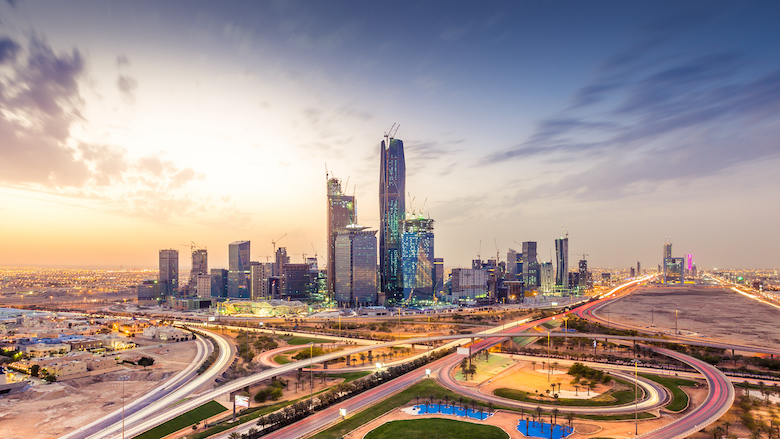Saudi Arabia to post 7.6% growth this year

Saudi Arabia is recovering strongly following a deep pandemic-induced recession and the kingdom is expected to register a growth of 7.6% this year, an IMF report said.
Liquidity and fiscal support, reform momentum under Vision 2030, and high oil prices and production have helped the economy recover with robust growth, contained inflation and a resilient financial sector, said a report issued following the conclusion of the IMF Executive Board’s 2022 Article IV consultation with Saudi Arabia.
The receding effects of the pandemic, rising oil production/prices and a strengthening economy have improved the fiscal and external positions, the report said.
Robust growth
Overall growth was robust at 3.2 percent in 2021, in particular, driven by a rebounding non-oil sector —supported by higher employment for Saudi nationals, particularly women — and is expected to increase significantly to 7.6 percent in 2022 despite monetary policy tightening and fiscal consolidation, and a, thus far, limited fall-out from the war in Ukraine. The non-oil GDP is expected to grow at 4.2%.
For 2023, IMF sees a GDP growth of 3.7% and non-oil growth of 3.8%, it said.
Inflation contained
Inflation remained contained at 3.1 percent in 2021 as the base effect of the mid-2020 VAT hike dissipated, coupled with a low passthrough of international food and commodity prices. The low passthrough is expected to help contain inflation at 2.8 percent in 2022, despite some inflationary pressures expected from double-digit wholesale price inflation and increasing shipping costs.
Banks remain liquid, and well capitalised, and their profitability — which declined during the Covid-19 pandemic– rebounded strongly in 2021 as net interest margins recovered. Credit to the private sector expanded by 15.4 percent in 2021, mainly driven by mortgages and SME lending. Saudi financial markets surged earlier this year, albeit most of this surge was reversed over the past two months in line with recent global developments.
The overall fiscal balance increased by almost 9 percentage points of GDP to a 2.3 percent of GDP deficit in 2021, mainly reflecting oil revenues and non-oil tax revenues supported by a rebounding economy and the full-year effect of the tripling of the VAT rate to 15 percent in mid-2020.
5.3% GDP surplus
Higher oil prices and stepped-up oil production improved the current account by 8.5 percentage points in 2021, registering a surplus of 5.3 percent of GDP as strong oil-driven exports surpassed growing imports and large remittance outflows. While reserves increased, net foreign assets declined, although remaining at very comfortable levels at 22 months of imports in 2021 and are expected in increase significantly in the wake of rising oil export revenues over the medium term.
Risks to the outlook are balanced, IMF said. On the upside, successful implementation of the National Investment Strategy and labour market reforms, or further increases in oil production could further improve the outlook. On the downside, key risks stem from pressures to spend oil windfalls and deviate from the reform agenda, inflationary pressures, another Covid surge (domestic or abroad), lower oil prices due to lower global activity if the war in Ukraine has lasting effects, and an abrupt slowdown in China, it said.
IMF Executive Directors agreed with the thrust of the staff appraisal. They welcomed Saudi Arabia’s substantial growth rebound, contained inflation, and strengthened external position, supported by the authorities’ swift pandemic policy response, strong reform momentum, and higher oil prices and production.
Reforms ‘must continue’
Against the backdrop of the positive economic outlook, with balanced risks, they underscored the need to continue implementing the Vision 2030 reform agenda, which will serve to diversify the economy and promote strong, inclusive, and greener growth.
Directors welcomed the authorities’ fiscal discipline and their adherence to the 2022 budget ceilings despite higher oil prices. To support fiscal consolidation and transition to a greener economy, directors underscored the need to sustain energy price reforms, including reconsideration of the cap on gasoline prices, and welcomed the authorities’ commitment to reach market energy prices by 2030.
They called for further efforts to strengthen non-oil revenue mobilisation through tax policy measures — including by maintaining the current VAT rate — and enhancing revenue administration. Directors commended the authorities for ongoing reforms to strengthen social safety nets through targeted schemes, which should help sustain energy price reforms.




